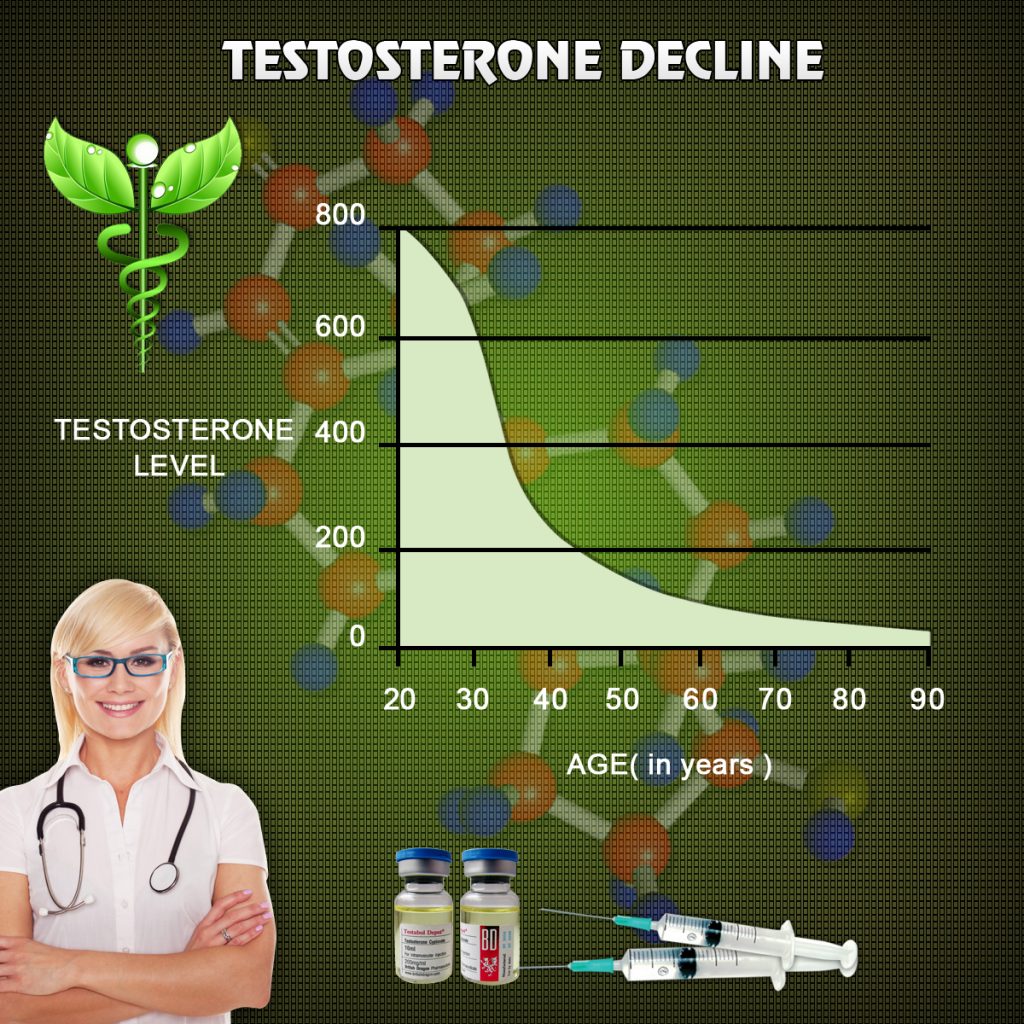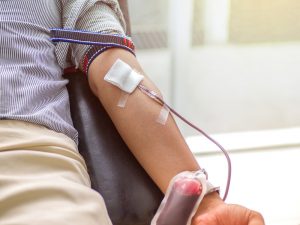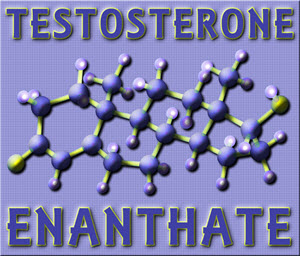 If you have signs and symptoms of low testosterone that bother you or affect the quality of your living condition (“quality of life”), there are many options available for increasing testosterone levels and achieving hormonal balance. Not everyone chooses treatment, however. There are a few ways to naturally increase your testosterone levels, but they are not guaranteed and some men have such a deficiency, it requires a doctor-supervised testosterone replacement therapy (TRT) program. TRT can be given using the following:
If you have signs and symptoms of low testosterone that bother you or affect the quality of your living condition (“quality of life”), there are many options available for increasing testosterone levels and achieving hormonal balance. Not everyone chooses treatment, however. There are a few ways to naturally increase your testosterone levels, but they are not guaranteed and some men have such a deficiency, it requires a doctor-supervised testosterone replacement therapy (TRT) program. TRT can be given using the following:
Video Link: https://vimeo.com/418660533
Video Download: Click Here To Download Video
Video Stream: Click Here To Stream Video
Video Link: https://vimeo.com/419112774
Video Download: Click Here To Download Video
Video Stream: Click Here To Stream Video
Buy Testosterone Gel or Testosterone Cream
The most commonly used Testosterone treatment options are skin gel or creams, which is used by about 50 out of 100 patients. The gel or cream is rubbed onto your shoulders or upper arms after a shower. This is the most common method due to its ease of use and zero involvement of needles. Many patients are leery of using needles and so the gels or creams are their only option. The downside to gels or creams is that if patients are not careful, the testosterone cream can be transferred to others when rubbed against, such as women or children. Patients must be extra careful to ensure it is fully rubbed in and abstain from physical contact with others for a certain amount of time, if those areas are exposed.
Buy Testosterone Shots
About 25 out of 100 patients use testosterone shots to treat testosterone deficiency. This option used to be the only way that patients could utilize a TRT program. Those who are not queasy about needles and feel confident in injecting the hormone find this the best option available on the market today. There are many different types of testosterone available as well, including testosterone cypionate, enanthate and propionate.
The different types of testosterone are based on their molecular structures and how many carbon, hydrogen and oxygen atoms are on each ester chain. Adding to the ester chain (esterification) improves the solubility of the hormone in oil (how it's stored in the vial) but the longer the chain, the slower the release of testosterone from the injection site to the rest of the body. The type of testosterone ester you choose to inject determines how often you will need to inject.
 Testosterone Patches in Decline of Use
Testosterone Patches in Decline of Use
Less than 5 to 10 out of 100 use testosterone patches, and the number is declining rapidly. This seems to be due to the visibility of the patch and potential of it falling off. Gels/creams are simple to rub in and once rubbed in, you do not see the material anymore. A patch is always there and it may turn some people off.
Testosterone Pellets Becoming Less Common to Injections and Cream/Gel
Nearly 3 out of 100 patients use testosterone in other forms, such as pellets placed in the body. Pellets are usually placed under the skin near the belly region and slowly release the testosterone over an extended period of time. Not many patients have heard of testosterone pellets as it is a newer option on the market. Perhaps one day pellets will be used more often.
Testosterone Pills Are Largely Not Recommended
At this time, pills are not approved for use in the U.S. by the Food and Drug Administration (FDA). They are not effective and the hormone breaks down in the stomach. More research needs to be done before any pills would be available for TRT.
When Should You Take Testosterone?
You should not take testosterone for non-medical reasons, such as bodybuilding, preventing aging side effects, or performance enhancement in the sports arena. Men should not utilize TRT if they have normal testosterone levels or if their testosterone levels have not been tested. If you have normal testosterone levels, using TRT will not help your health problems, unless there is a medical necessity – termed hypogonadism. Also, if you are trying to father a child, you should not be on TRT. TRT can decrease your sperm count and fertility if not used properly or not in conjunction with other drugs that help mitigate side effects.
 Testosterone Specialist Physicians / TRT / Testosterone Replacement Doctors
Testosterone Specialist Physicians / TRT / Testosterone Replacement Doctors
Before you take TRT, a doctor who is skilled in diagnosing low-T should examine you. Your doctor should not prescribe TRT without taking an in-depth look at your health history, giving you a physical exam and a comprehensive blood test. Many of the symptoms of low-T can be the result of other health problems. Other causes of symptoms need to be ruled out before testosterone is prescribed.
Testosterone Blood Tests
There are two different types of testosterone blood tests that doctors use to evaluate your blood levels. This is because testosterone travels through the blood in two different ways. One way is being attached to two different proteins, either albumin or sex hormone-binding globulin (SHBG) and the other way is being free and not attached to any proteins. Some doctors may only test for the free testosterone levels in the blood to diagnose certain conditions but most patients get a total testosterone test which measures both free and attached.
 SHBG is a protein that is produced your liver that carries sex hormones throughout the blood. In addition to testosterone, it also carries estrogen and dihydrotestosterone (DHT). The reason for this is to help control the release of the hormones into the body's tissues and regulates how much they can use at a time.
SHBG is a protein that is produced your liver that carries sex hormones throughout the blood. In addition to testosterone, it also carries estrogen and dihydrotestosterone (DHT). The reason for this is to help control the release of the hormones into the body's tissues and regulates how much they can use at a time.
Testosterone Side-Effects
Before you start TRT, your doctor should talk to you about all possible side effects. Side effects can include: anger management issues, hypertension (high blood pressure), acne, aggression, testicular shrinkage (when testosterone is used without estrogen blockers) and cardiovascular risks.
There is some controversy regarding the safety of testosterone regarding heart health and prostate health. Some studies have shown increased rates of prostate cancer and heart attacks in men on a TRT program, or with increased testosterone levels. Some researchers claim that testosterone therapy can double the risk of heart attacks in men with existing heart disease. However, some new research has come out suggesting that estradiol may be the real culprit behind cardiovascular issues when on TRT.
In addition, many of these side effects can be avoided if the patient does not abuse the steroid and follows the advice and dosage recommended by their doctor.
Natural Ways to Boost Testosterone
Exercise: This is one of the most effective ways to boost your testosterone levels. The best types are weight lifting/resistance training and high intensity interval training (HIIT). It has been found that people who exercise regularly have higher testosterone levels, and this even counts for the elderly population. Increased physical activity could be even more beneficial in terms of increasing testosterone levels than a weight loss diet for overweight and obese men. Get out there and sweat!
Balanced Diet: Eating a balanced diet full of protein, fat and carbs is key here as well. When you eat healthy, your endocrine (hormone) system will thank you. Constant dieting and/or overeating disrupts your natural testosterone release cycles. Eating a moderate amount of healthy fats are also good for testosterone production as the testosterone molecule is built off of the cholesterol molecule. Their structures are very similar.
Stress Control: When you are stressed out, your cortisol levels can skyrocket, especially with chronic stress. Unfortunately, when cortisol levels go up, testosterone levels go down. In addition, being stressed out can cause you to overeat (further disruption), gain weight and store extra body fat around your organs which can all negatively impact testosterone concentrations.
Vitamin D: Vitamin D may act as a natural testosterone booster. A scientific study found that supplementing with 3,000 IU of vitamin D pills a day increased the subject's testosterone levels by approximately 25%.
Good Sleep Habits: One scientific study found that people who only slept five hours a night had an average 15% reduction in testosterone levels the next day and a more long-term study found that those who slept only four hours a night were borderline deficient in testosterone. Getting enough sleep is so important, not just for testosterone levels, but overall health!
Avoid Estrogen-like Compounds: If you are exposed to high levels of estrogen-like compounds, this will lower your testosterone levels. These compounds include BPA (found in canned food), parabens (found in beauty/health products) and other chemicals found in plastic.
 Testosterone Boosters
Testosterone Boosters
There are a few natural testosterone boosters out there that are actually supported via scientific evidence. The most researched is an herb called ashwagandha that has been shown to increase levels by 15% in healthy men and lowered cortisol levels by 25%.
Another one is ginger. A study of infertile humans found that ginger could boost their testosterone levels by 17% as well as other important sex hormones.
Others include horny goat weed, tongkat ali and shilajit. Many of these are anecdotal and may or may not have an effect on testosterone levels. Experiment for yourself but consult with a doctor first.
Testosterone Levels Must Be Checked
If your doctor prescribes TRT, you should have regular check-ups. Your doctor should follow up with blood tests for testosterone level, PSA, and hematocrit. (PSA is a test for prostate issues including prostate cancer. Hematocrit tests your red blood cell count.) Based on your health history, your doctor may want to follow up with other tests.
Signs of Low Testosterone
The medical term for low testosterone is hypogonadism. A doctor will diagnose you with hypogonadism if your testosterone levels are below 300 ng/dL and you are showing symptoms of the condition. Symptoms include:
- Decreased sex drive and energy
- Depression
- Erectile Dysfunction
- Infertility
- Decrease in hair growth, muscle mass and bone mass
- Development of breast tissue
- Hot flashes
- Difficulty concentrating
Signs of High Testosterone
In normal, healthy men, the range of testosterone is 300-1,070 ng/dL with an average of 679 ng/dL. Anything above 1,070 ng/dL would be considered “high” testosterone. Having too much testosterone could lead to cardiovascular issues. Symptoms include:
- Aggressive and irritable behavior
- Acne and oily skin
- Sleep apnea
- Increased muscle mass
- Low sperm count (when Testosterone is over-used or abused)
- Shrunken testicles (H.C.G. can mitigate this issue)
- Risky Sexual Behavior
Benefits and Risks of Testosterone Replacement Protocol Treatments
Discuss the benefits and risks of taking testosterone replacement therapy with your doctor. You should not be on a TRT program if you do not have low levels of testosterone or side effects associated with low-T. You should understand the possible benefits, side effects, and risks before you start taking TRT. You should also know that today's science does not offer final answers about whether taking TRT will increase your risk of prostate cancer or heart disease. There is conflicting evidence about testosterone and prostate cancer and/or heart disease, but the FDA requires warnings in the patient paperwork about risks associated with heart attacks and strokes concerning testosterone usage.
Get in Touch With Testosterone Clinic
 If you find yourself suffering from the symptoms of low testosterone, as listed above, and cannot seem to alleviate them by either using natural testosterone boosters or following our recommendations of naturally boosting your levels, then you may need to consult a doctor about your symptoms. At our testosterone clinic, we are endocrinologists who deal with specific issues of the endocrine system, or hormones. We have decades of experience studying, diagnosing and treating patients who suffer from hypgonadism or other endocrine disorders such as growth hormone deficiency and even alleviating the unwanted side effects of menopause.
If you find yourself suffering from the symptoms of low testosterone, as listed above, and cannot seem to alleviate them by either using natural testosterone boosters or following our recommendations of naturally boosting your levels, then you may need to consult a doctor about your symptoms. At our testosterone clinic, we are endocrinologists who deal with specific issues of the endocrine system, or hormones. We have decades of experience studying, diagnosing and treating patients who suffer from hypgonadism or other endocrine disorders such as growth hormone deficiency and even alleviating the unwanted side effects of menopause.
Feel free to consult with one of our patient advisors by calling us or using our contact form to get in touch. We offer free, no-obligation consultation. Do not let yourself suffer any longer from depression, erectile dysfunction or low libido. You don't want to let your life pass by while suffering from a condition that is actually easy to treat! Call now!
Contact Us Today For A Free Consultation

- BioSante Pharmaceuticals, Inc. to Present at BIO Investor Forum [Last Updated On: March 16th, 2025] [Originally Added On: October 9th, 2012]
- Secondary osteoporosis: More than what meets the eye! [Last Updated On: March 16th, 2025] [Originally Added On: October 10th, 2012]
- Trimel Provides Clinical and Operational Update [Last Updated On: March 16th, 2025] [Originally Added On: October 15th, 2012]
- Obese teen boys likelier to become impotent and infertile adults [Last Updated On: March 16th, 2025] [Originally Added On: October 17th, 2012]
- Obese teen boys have up to 50 percent less testosterone than lean boys [Last Updated On: March 16th, 2025] [Originally Added On: October 17th, 2012]
- Trimel Reports Physician Market Research Results for CompleoTRT(TM) [Last Updated On: March 16th, 2025] [Originally Added On: October 24th, 2012]
- Obese teen boys likelier to turn into 'impotent' men [Last Updated On: March 16th, 2025] [Originally Added On: October 24th, 2012]
- Trimel Pharmaceuticals Corporation to Report Third Quarter 2012 Results and Host a Conference Call to Update Investors [Last Updated On: March 16th, 2025] [Originally Added On: November 2nd, 2012]
- Peer Exchange: Establishing Bone Health Clinics - Video [Last Updated On: March 16th, 2025] [Originally Added On: November 2nd, 2012]
- What is hypogonadism and how does it affect fertility? - Video [Last Updated On: March 16th, 2025] [Originally Added On: November 2nd, 2012]
- Low Testosterone in Men or Man-O-Pause - Video [Last Updated On: March 16th, 2025] [Originally Added On: November 2nd, 2012]
- Propecia (Finasteride) -- Undisclosed Mechanisms, Potential Dangers [Last Updated On: March 16th, 2025] [Originally Added On: November 2nd, 2012]
- How to Get Ripped - Why You Shouldnt Use Anabolic Steroids - Video [Last Updated On: March 16th, 2025] [Originally Added On: November 2nd, 2012]
- Future Doc: Andropause Alternatives with Dr. James Biddle Part 1 - Video [Last Updated On: March 16th, 2025] [Originally Added On: November 2nd, 2012]
- Increase Testosterone Naturally With these Diet And Workout Secrets - Video [Last Updated On: March 16th, 2025] [Originally Added On: November 2nd, 2012]
- Sector Update: Healthcare - Video [Last Updated On: March 16th, 2025] [Originally Added On: November 2nd, 2012]
- Signs And Symptoms of Hypogonadism [Last Updated On: March 16th, 2025] [Originally Added On: November 2nd, 2012]
- Auxilium and Pfizer Will Conclude Agreement on XIAPEX® EU Collaboration [Last Updated On: March 16th, 2025] [Originally Added On: November 9th, 2012]
- Repros Therapeutics Inc.(R) Reports Third Quarter 2012 Financial Results [Last Updated On: March 16th, 2025] [Originally Added On: November 14th, 2012]
- hypogonadotropic hypogonadism - Video [Last Updated On: March 16th, 2025] [Originally Added On: November 22nd, 2012]
- Research and Markets: Male Hypogonadism - Pipeline Review, H2 2012 [Last Updated On: March 16th, 2025] [Originally Added On: November 30th, 2012]
- Auxilium Pharmaceuticals, Inc. to Present At The Oppenheimer 23rd Annual Growth Conference [Last Updated On: March 16th, 2025] [Originally Added On: December 8th, 2012]
- Low Testosterone (Hypogonadism) - Part 2 - Video [Last Updated On: March 16th, 2025] [Originally Added On: December 10th, 2012]
- The National Mesothelioma Law Firm of Baron and Budd Reports on a New Drug that Could Improve the Health of ... [Last Updated On: March 16th, 2025] [Originally Added On: December 19th, 2012]
- Hypogonadism ¦ Treatment and Symptoms - Video [Last Updated On: March 16th, 2025] [Originally Added On: March 7th, 2013]
- Research and Markets: Male Hypogonadism Global Clinical Trials Review, H1, 2013 [Last Updated On: March 16th, 2025] [Originally Added On: May 1st, 2013]
- Male hypogonadism Prof Ossama Fouda - Video [Last Updated On: March 16th, 2025] [Originally Added On: May 9th, 2013]
- Low Testosterone (Hypogonadism) - Part 3 - Video [Last Updated On: March 16th, 2025] [Originally Added On: July 2nd, 2013]
- Hypogonadism - what should you do - Video [Last Updated On: March 16th, 2025] [Originally Added On: July 2nd, 2013]
- NURS805 Hypogonadism Lecture - Video [Last Updated On: March 16th, 2025] [Originally Added On: August 16th, 2013]
- Hypogonadism: MedlinePlus Medical Encyclopedia [Last Updated On: March 16th, 2025] [Originally Added On: November 3rd, 2013]
- Hypogonadism - Diseases & Conditions - Medscape Reference [Last Updated On: March 16th, 2025] [Originally Added On: November 10th, 2013]
- Hypogonadotropic hypogonadism - Wikipedia, the free encyclopedia [Last Updated On: March 16th, 2025] [Originally Added On: November 10th, 2013]
- Low Testosterone (Low-T) Normal Levels, Hypogonadism, Symptoms ... [Last Updated On: March 16th, 2025] [Originally Added On: November 15th, 2013]
- HYPOGONADISM - University of Dundee [Last Updated On: March 16th, 2025] [Originally Added On: November 23rd, 2013]
- FAQ - Hypogonadism - MEDICAL DIAGNOSIS AND MEDICINAL PLANTS [Last Updated On: March 16th, 2025] [Originally Added On: November 23rd, 2013]
- Hypogonadism - About.com Men's Health [Last Updated On: March 16th, 2025] [Originally Added On: December 2nd, 2013]
- Exciting medical advances using HRT [Last Updated On: March 16th, 2025] [Originally Added On: December 12th, 2013]
- Male hypogonadism: Symptoms - MayoClinic.com [Last Updated On: March 16th, 2025] [Originally Added On: December 12th, 2013]
- Audio-Digest Foundation Announces the Release of Oncology Volume 04, Issue 16: Highlights from Future Directions ... [Last Updated On: March 16th, 2025] [Originally Added On: December 15th, 2013]
- Hypogonadism - Medscape Reference [Last Updated On: March 16th, 2025] [Originally Added On: December 21st, 2013]
- Hypogonadism [Last Updated On: March 16th, 2025] [Originally Added On: December 23rd, 2013]
- Hypogonadism - HealthCentral [Last Updated On: March 16th, 2025] [Originally Added On: December 24th, 2013]
- Hypogonadism | Medscape - Latest Medical News, Clinical Trials ... [Last Updated On: March 16th, 2025] [Originally Added On: December 30th, 2013]
- Hypogonadism - SharedJourney [Last Updated On: March 16th, 2025] [Originally Added On: January 23rd, 2014]
- Study Finds Potential Heart Risks from Testosterone Therapy [Last Updated On: March 16th, 2025] [Originally Added On: February 3rd, 2014]
- Endocrine Society calls for large-scale studies to evaluate testosterone therapy risks [Last Updated On: March 16th, 2025] [Originally Added On: February 8th, 2014]
- Testosterone Therapy Not Always Good for Older Men [Last Updated On: March 16th, 2025] [Originally Added On: February 11th, 2014]
- Hypogonadism: Types, Causes, & Symptoms Healthline [Last Updated On: March 16th, 2025] [Originally Added On: February 14th, 2014]
- Low Testosterone (Hypogonadism) in Men - Video [Last Updated On: March 16th, 2025] [Originally Added On: February 14th, 2014]
- Hypogonadism : Types, Causes, & Symptoms - Healthline [Last Updated On: March 16th, 2025] [Originally Added On: February 17th, 2014]
- Hypogonadism | Medscape - Latest Medical News, Clinical ... [Last Updated On: March 16th, 2025] [Originally Added On: February 23rd, 2014]
- Endo: FDA Oks AVEED Injection For Treatment Of Adult Men With Hypogonadism [Last Updated On: March 16th, 2025] [Originally Added On: March 6th, 2014]
- Unit Project 1 Hypogonadotropic hypogonadism - Video [Last Updated On: March 16th, 2025] [Originally Added On: March 8th, 2014]
- Update on Endo's Product Portfolio - Analyst Blog [Last Updated On: March 16th, 2025] [Originally Added On: March 11th, 2014]
- Male hypogonadism Symptoms - Diseases and Conditions ... [Last Updated On: March 16th, 2025] [Originally Added On: April 2nd, 2014]
- Hypogonadism: Types, Causes, & Symptoms - Medical ... [Last Updated On: March 16th, 2025] [Originally Added On: April 6th, 2014]
- VLog #127 Frances Explains Hypogonadism. - Video [Last Updated On: March 16th, 2025] [Originally Added On: April 7th, 2014]
- Repros Completes Enrollment for Androxal Study - Analyst Blog [Last Updated On: March 16th, 2025] [Originally Added On: April 16th, 2014]
- Prevalence, Diagnosis and Treatment of Hypogonadism in ... [Last Updated On: March 16th, 2025] [Originally Added On: April 30th, 2014]
- Repros Therapeutics Q2 Loss a Penny Wider than Expected - Analyst Blog [Last Updated On: March 16th, 2025] [Originally Added On: August 12th, 2014]
- Repros Reports Encouraging Late-Stage Data on Androxal - Analyst Blog [Last Updated On: March 16th, 2025] [Originally Added On: August 28th, 2014]
- Repros Therapeutics Analyst Brief Report; Androxal(R) Achieves Superiority in Top Line Analysis by Small Cap Street ... [Last Updated On: March 16th, 2025] [Originally Added On: September 30th, 2014]
- The Wall Street Journal: Repros Therapeutics shares drop on drug application setback [Last Updated On: March 16th, 2025] [Originally Added On: October 18th, 2014]
- Apricus expands development pipeline with in-licensing of US rights for fispemifene [Last Updated On: March 16th, 2025] [Originally Added On: October 21st, 2014]
- Apricus expands development pipeline with the in-licensing of US rights for fispemifene, a phase 2b ready asset, from ... [Last Updated On: March 16th, 2025] [Originally Added On: October 21st, 2014]
- Hypogonadism No Moustache! No Beard!! [Last Updated On: March 16th, 2025] [Originally Added On: October 28th, 2014]
- Male Hypogonadism: Male Reproductive Endocrinology: Merck ... [Last Updated On: March 16th, 2025] [Originally Added On: October 28th, 2014]
- Hypogonadism Wikipedia [Last Updated On: March 16th, 2025] [Originally Added On: October 28th, 2014]
- Urology Care Foundation - Urology A-Z - Low Testosterone [Last Updated On: March 16th, 2025] [Originally Added On: November 3rd, 2014]
- Will Repros (RPRX) Miss Estimates This Earnings Season? - Analyst Blog [Last Updated On: March 16th, 2025] [Originally Added On: November 5th, 2014]
- Hypogonadism in men living with HIV - Video [Last Updated On: March 16th, 2025] [Originally Added On: November 7th, 2014]
- Male Hypogonadism Therapeutic Pipeline Industry Review, H2 2014 - Video [Last Updated On: March 16th, 2025] [Originally Added On: November 7th, 2014]
- Testosterone Deficiency (Hypogonadism) Overview ... [Last Updated On: March 16th, 2025] [Originally Added On: November 23rd, 2014]
- Endo to Acquire Rights to Testosterone Nasal Gel Natesto - Analyst Blog [Last Updated On: March 16th, 2025] [Originally Added On: November 26th, 2014]
- Male hypogonadism pathophysiology - Video [Last Updated On: March 16th, 2025] [Originally Added On: January 14th, 2015]
- Auxilium Announces Results from Special Meeting of Stockholders [Last Updated On: March 16th, 2025] [Originally Added On: January 28th, 2015]
- What is Hypogonadism - Symptoms and Treatment | Hormone ... [Last Updated On: March 16th, 2025] [Originally Added On: January 30th, 2015]
- Male Hypogonadism 1/28/15 - Video [Last Updated On: March 16th, 2025] [Originally Added On: January 31st, 2015]
- Male hypogonadism: symptoms, cause, treatment, risk ... [Last Updated On: March 16th, 2025] [Originally Added On: February 18th, 2015]
Word Count: 1965




















